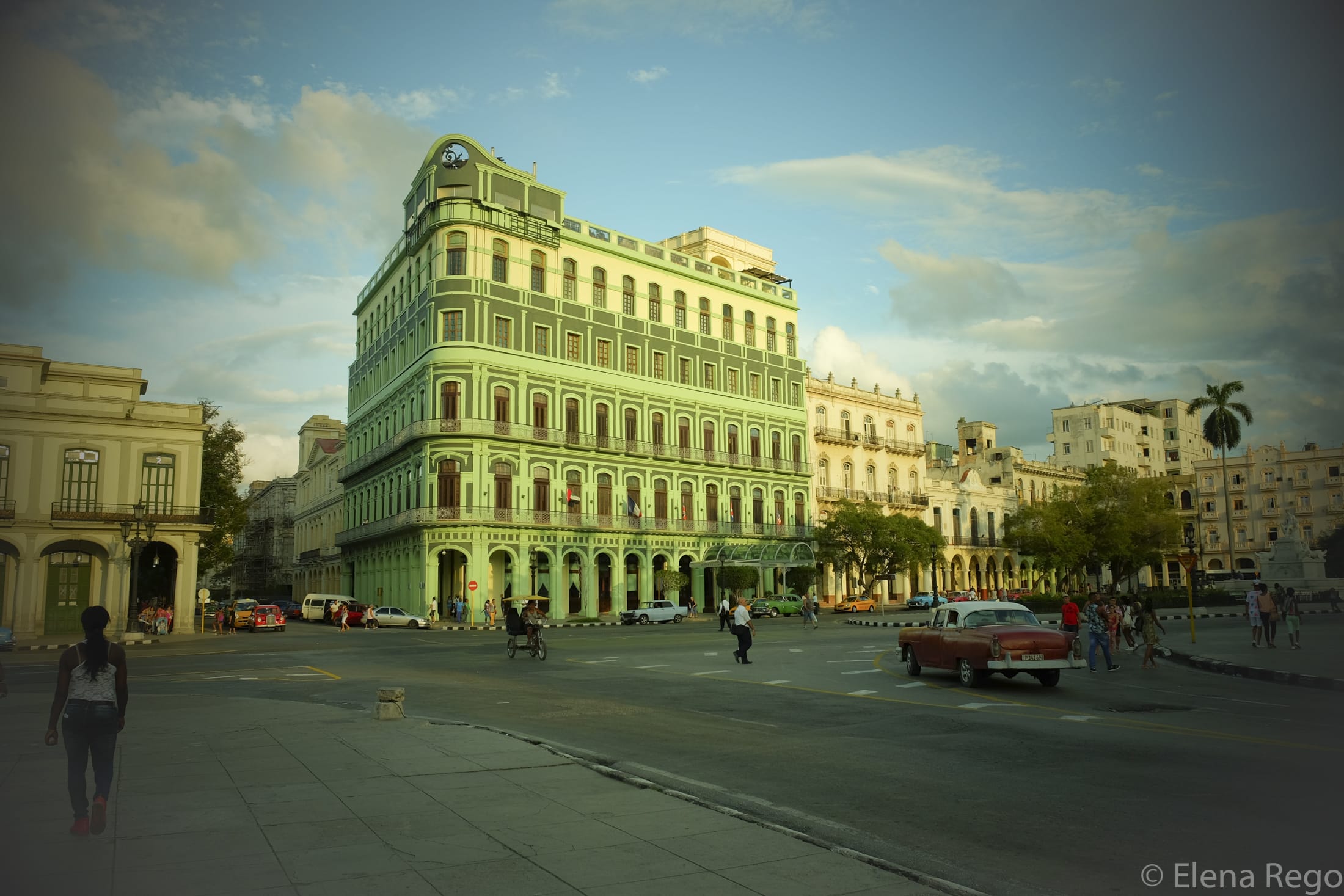A couple of days before we got married, I asked Jon if he was missing his father. More than anything, I asked because even though he hadn’t mentioned his father at all, I had a sense that in fact he was. Jon affirmed and then asked me if I felt the same. I hadn’t really thought about it, but given a few seconds to check in with myself, the reality is that I wasn’t.
My relationship with Jon up until that point had been our own, my father having died some 11 years prior to Jon and I meeting. I had never been a woman to want to be ‘given away’ or walked down the isle by anyone but myself, so the ritual of marriage itself wasn’t tied to my parents as much as it was about the space I had created with another person.
All this sounds a bit dry and detached I suppose. But 2 days later, as our plane is descending down in Havana, Cuba, the telltale lump in my throat spoke of something much different.
The last and only other time I had come to Cuba was in December of 1996; two months after my father’s death.
The trip we (my mother, brother and I) took that December was equal parts a homecoming as well as an avoidance of the holiday season without my father.
For me it became a way to deepen a connection to someone that was gone and to complete a circle he was never able to complete with me. Landing on this island for the first time was a way for him to share so much of what he had tried to convey to me about his home, a culture and the source of pride he carried all his life.
I landed on the island in 1996 with memories of a place I had never been to before, but had a very visceral sense of, none the less. To this day I marvel at how that could be.
This time, at the end of 2015, almost 20 years later, it’s different. I have my new husband at my side, my partner of already almost 12 years, and I’m not in mourning.
But that familiar feeling is back. A return home of sorts. As well… all of the emotions that came with being a second generation in exile in the United States. It’s impossible not to have any emotional charge over the political state of Cuba, it’s history and all that occurred to that specific generation in exile at the time of the revolution.
Before we even land, I have questions that will likely never be answered.
Why didn’t my father’s father, a Spaniard, take his family back to Spain when it all started to fall apart? Am I considered a child of a ‘guano’ here? A deserter and therefore looked downed on? Did the remaining family members on both my mother’s and father’s side resent that they had left this country over 60 years ago, leaving everyone else behind? Should we really be here, giving money and time to a regime that is still censoring and oppressing it’s people? Does anyone in Cuba even feel that there is a problem here or is it my entitled, capitalist leanings clouding my ability to really see things clearly? Should we even tell people we’re American?
It’s hard to separate out the internal longing of a child for her father and all of the internal political unrest he carried with him while I knew him and consequently carry an imprint of. It’s hard making sense of the simplicity of mourning with the complicated reality of a country’s history. I don’t want to spend time sussing it out.
In truth, while driving in the Taxi away from the airport less than an hour after we had landed, I just wanted to exist in the waves of unnameable emotions, because though they were conflictual, they were familiar in a way I hadn’t felt in years. And in that odd way mourning has, it lent me a sense of solace.

Elena, I always love reading anything you write, from recipes to food outings and when you write about palpable soul journeying like this- my spirit smiles and bows to yours. I love you and am so excited that you two are sharing this with us all <3
Thank you… and thank you for the space you hold for Jon and I. We love you huge and I feel the beauty of your witness.
Awe, shucks. I love you two to pieces!